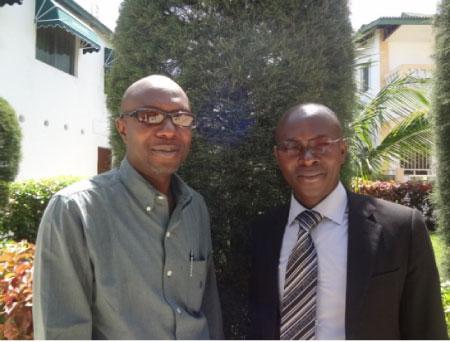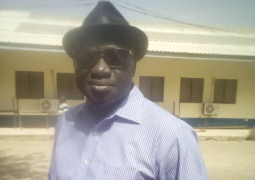
The workshop was aimed at developing an electricity strategy and renewable energy law for The Gambia.
The workshop brought together stakeholders from various institutions in the country and representatives from the European Union who funded the programme.
According to experts, the current renewable energy project seeks to reduce the barriers to renewable energy development by not only providing grant funding to five identified projects but also by developing a renewable energy law, Feed-in Tariff seeks and standard PPA and also electricity strategy for The Gambia.
They noted that a great success has already been registered in terms of implementation.
Out of the expected output of 1.5MW, 908.5KW has been delivered in less than six months of implementation.
The Feed-in Tariff seeks to encourage individuals likewise businesses to invest in renewable energy by providing guaranteed price, for Kwh produced and feed to the grid likewise, a standard power purchase agreement to allow a level playing field and avoid ambiguities.
Declaring the workshop open, Ada Gaye, the permanent secretary, Ministry of Energy, has underscored the significance of the workshop.
She however revealed that, for a very long time, electricity has been 100% generation from fossil fuel.
According to her, Africa in general and The Gambia in particular, have been blessed with abundant renewable energy resources ranging from sun, wind, hydro, and bio-energy, to name a few, which she said if fully harnessed and efficiently utilised can greatly help African economies to grow and thus reduce poverty to a minimum level.
Unfortunately most renewable resources are either untapped or under-utilized mainly due to limited human resource capacity, unclear policies, lack of legal and regulatory frameworks, limited access to finance and even low level of awareness on the part of policymakers.
According to her, The Gambia, like other African countries, has continued to heavily depend on fuel wood and fossil fuels for its energy needs.
She however went on to outline the great importance The Gambia government attaches to renewable energy development, which she said has led to the creation of Gambia Renewable energy centre in 1987, to promote the use of renewable energy and energy efficiency and carryout adoptive research in renewable energy, etc.
“Just at least last month the Ministry of Energy in collaboration with ECREEE and UTG conducted RETScreen training.
The RETScreen helps to assess the financial and technical viability of renewable energy efficiency projects,” she added.
PS Gaye commended the EUEI through the EU delegation to The Gambia for providing the support, the AF-MERCADOS EMI for their timely submission of work and collaborating institutions, especially with MOFEA, NAWEC and PURA.
For his part, Sylvain Lequere, the EU programme manager, who delivered a statement on behalf of the EU Charge de Affairs, has spoken extensively of the importance of renewable energy for The Gambia.
He said the Government of The Gambia has clearly identified development of renewable energy as a priority in the PAGE 2012-2015.
This focus is welcome, as the Gambia Energy sector is currently dealing with major constraints including, among others, its lack of electricity generation and it’s high dependency on fuel.
He however added that The Gambia has no choice but to be innovative in the renewable energy sector to make sure The Gambian population has access to an affordable and sustainable energy, necessary for the long-term development of the country.
He also challenged the consultant to provide a comprehensive renewable energy law to The Gambia at the end of the year, which will become a leading country in this challenging area within the ECOWAS region, while reassuring the commitment of the European Union to assist The Gambia government in striving for the development of the country
For her part, Kumba Conateh NAM, the deputy permanent secretary at the Ministry of Finance and Economic Affairs, noted that the importance of energy to all human endeavours and to the achievement of the Millennium Development Goal (MDG) are crucial.
She said without adequate, reliable, affordable and efficient supply of electricity, economies cannot grow and poverty cannot be reduced.
She noted that electricity is an important input in all sectors of the economy.
Malick Saine, director of technical regulatory at PURA, said the standardization of the PPA contract and the model for computing Feed-in Tariffs would go a long way in removing two of the most significant barriers to entry into the renewable energy sector.
He said the long term tariff setting by PURA would send an independent signal to investors in terms of price predictability.
Read Other Articles In Article (Archive)
Gambia Hosts Trans-boundary Meeting
Aug 25, 2009, 2:36 PM



